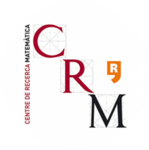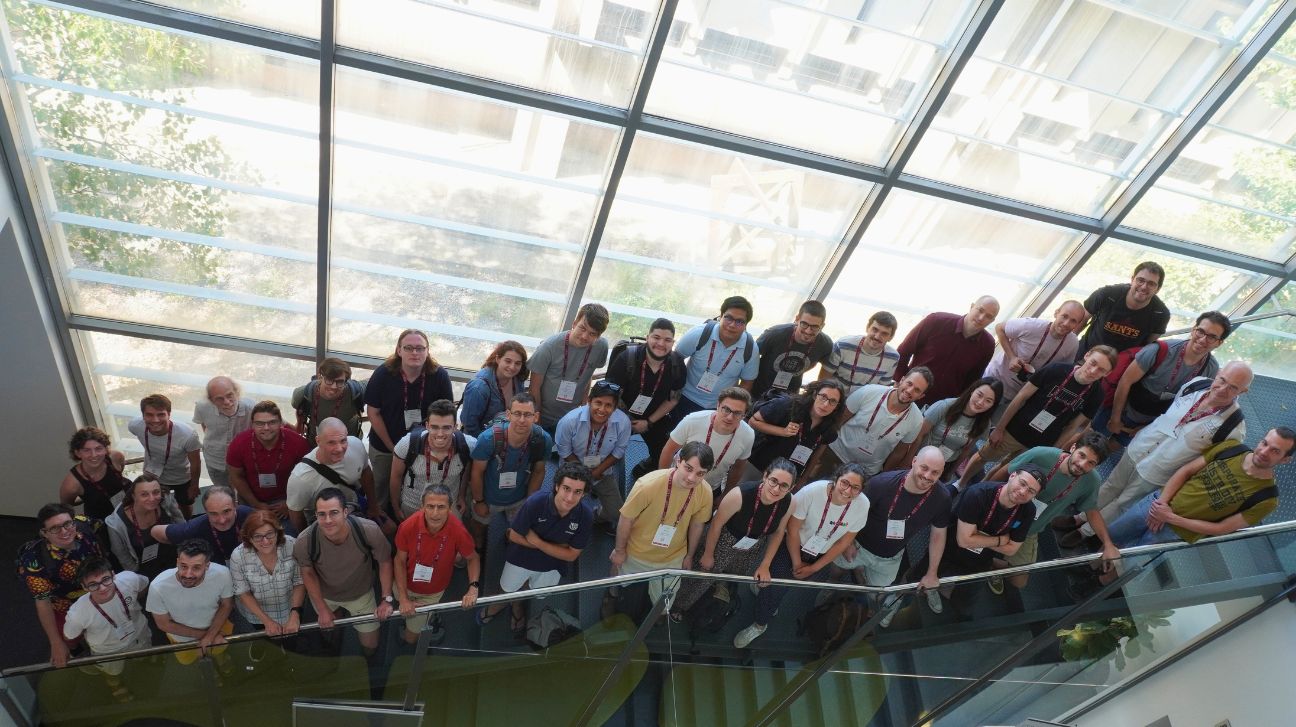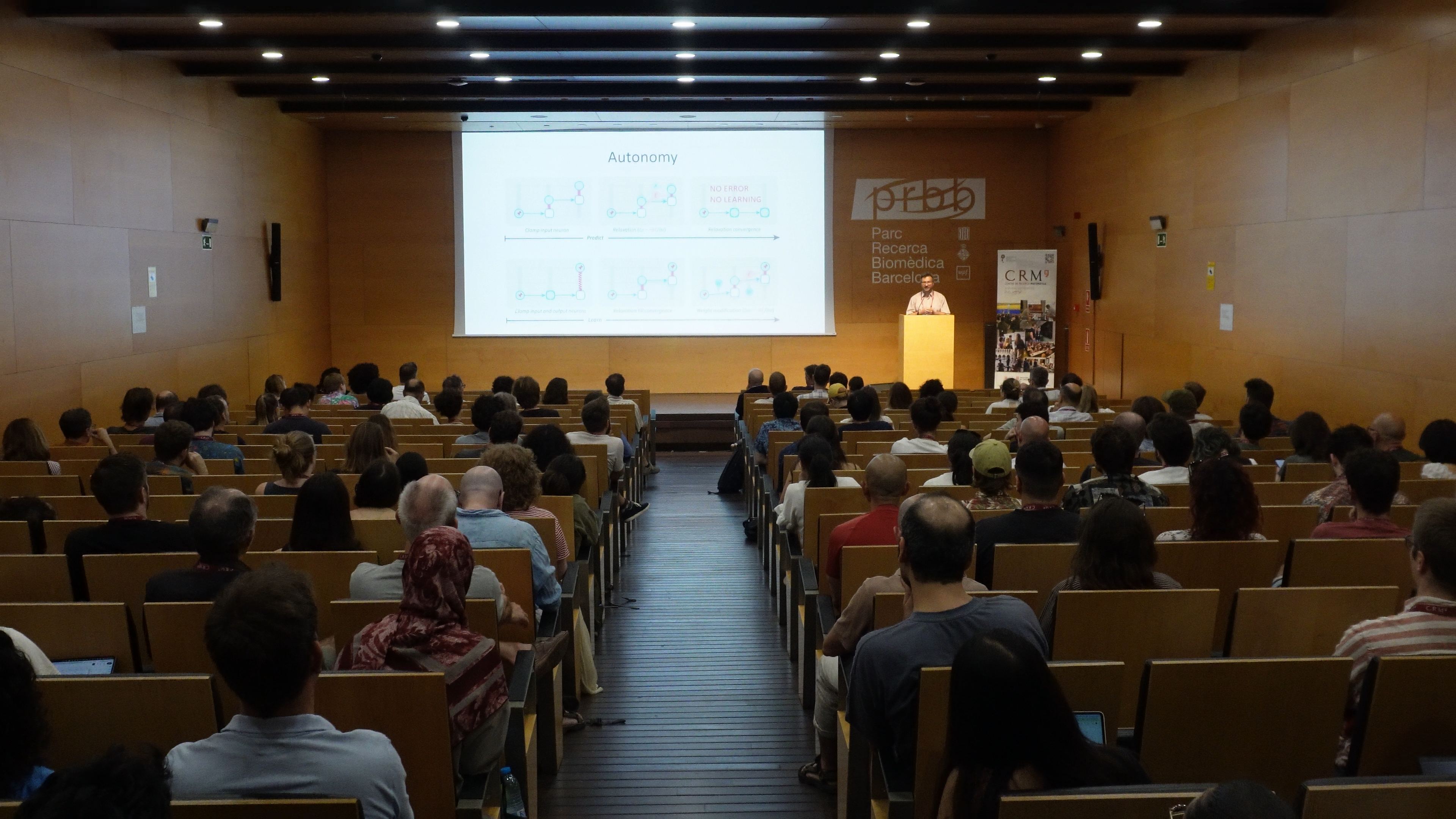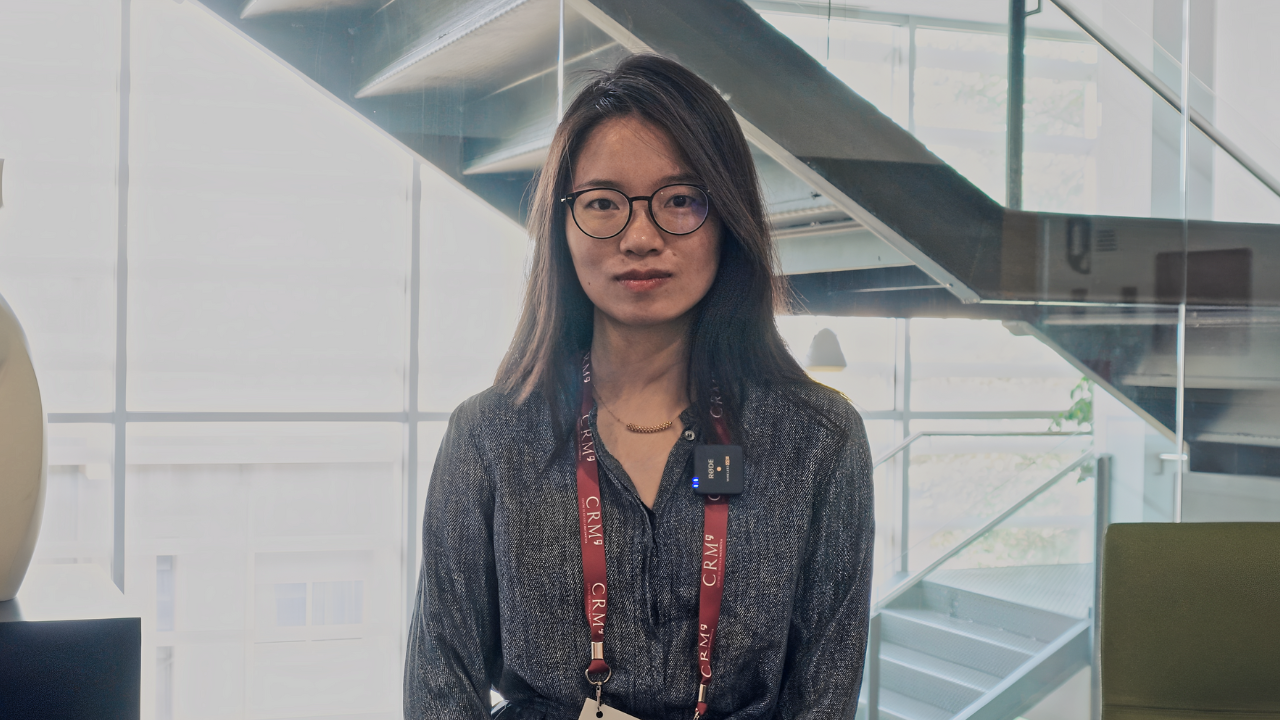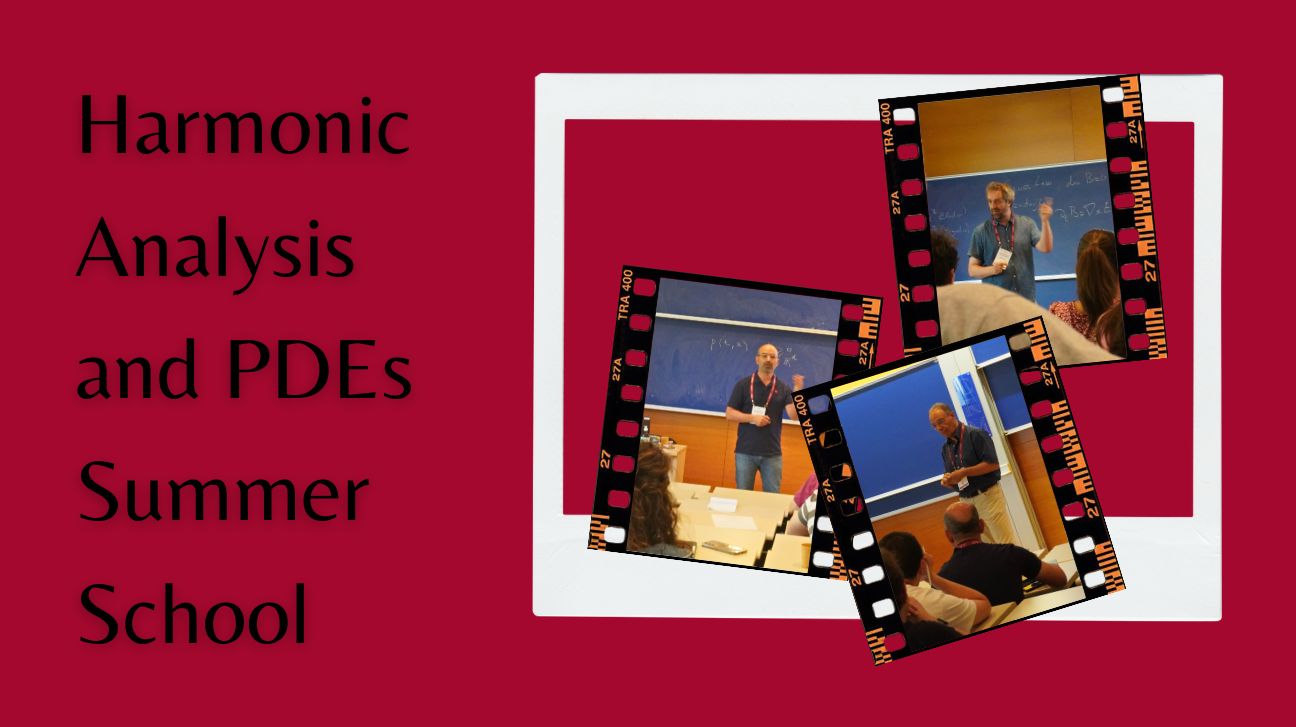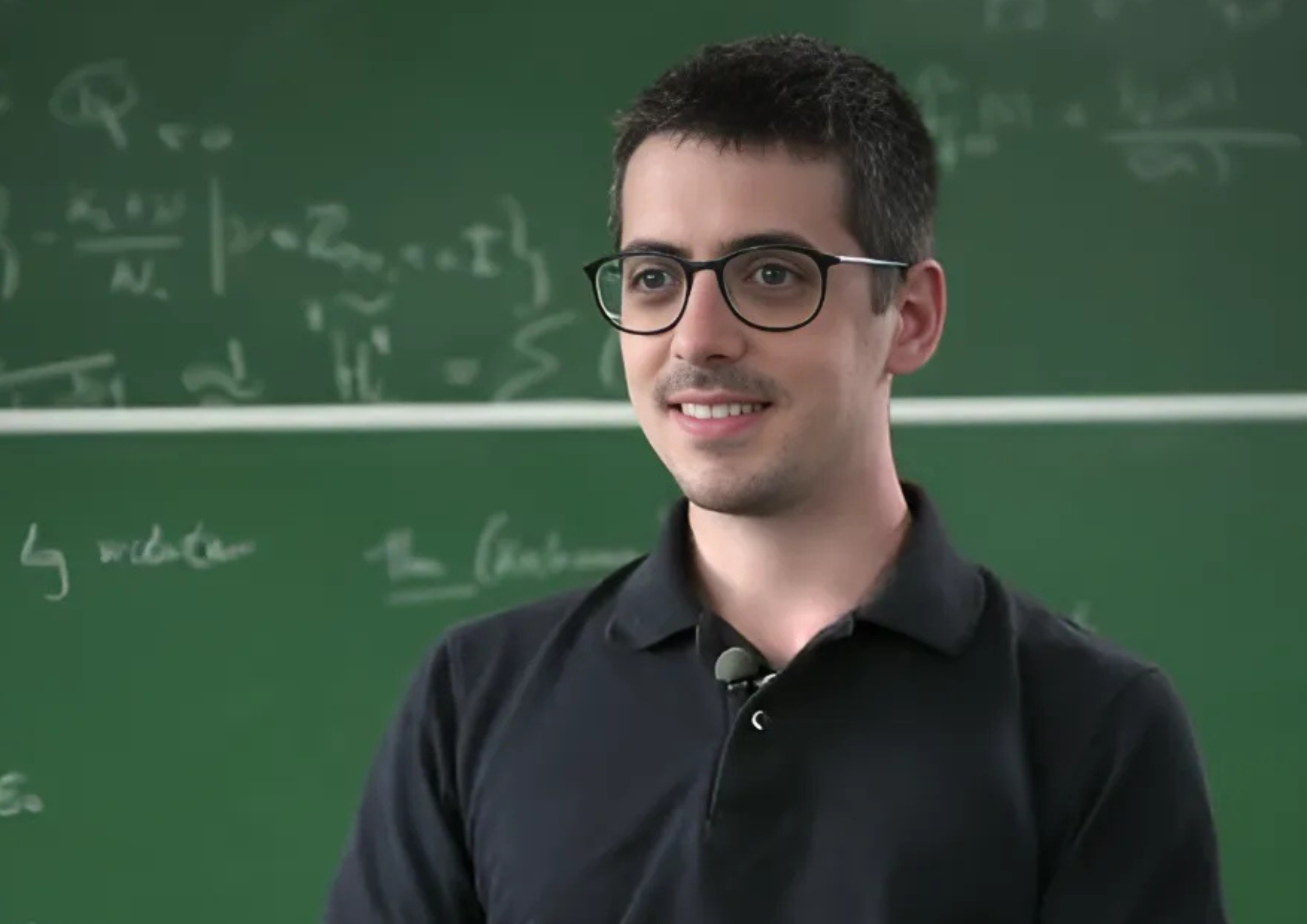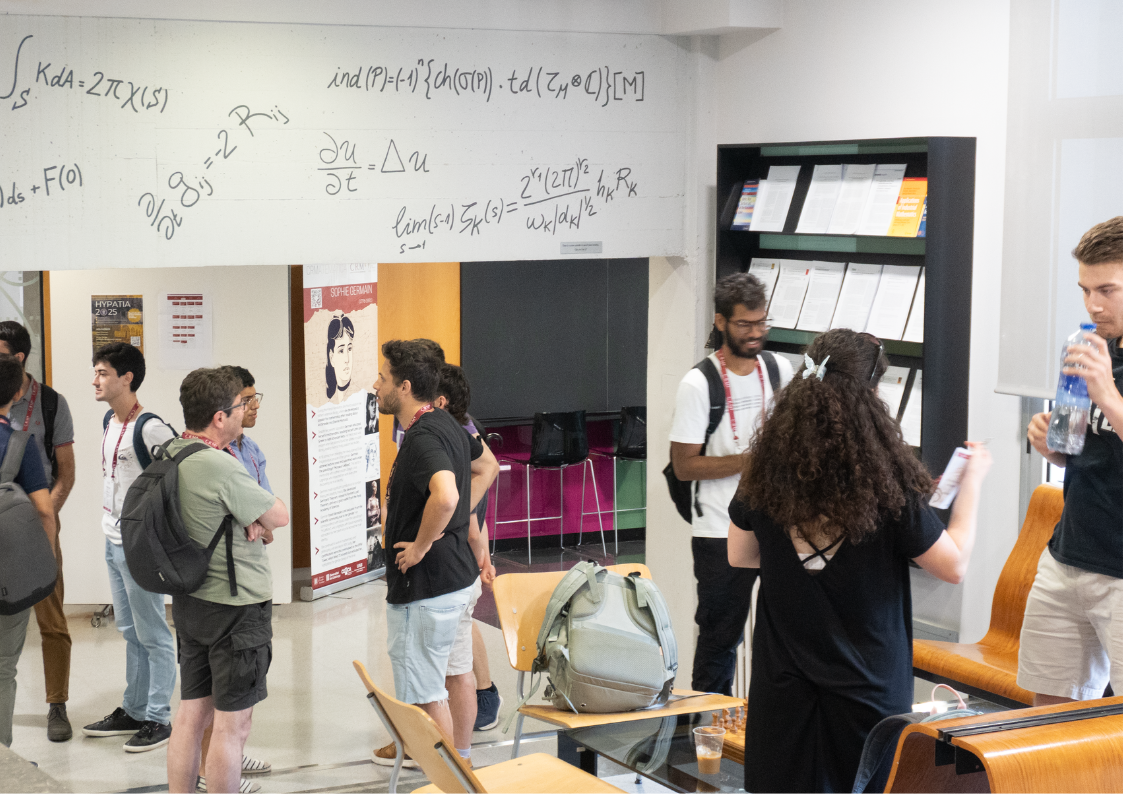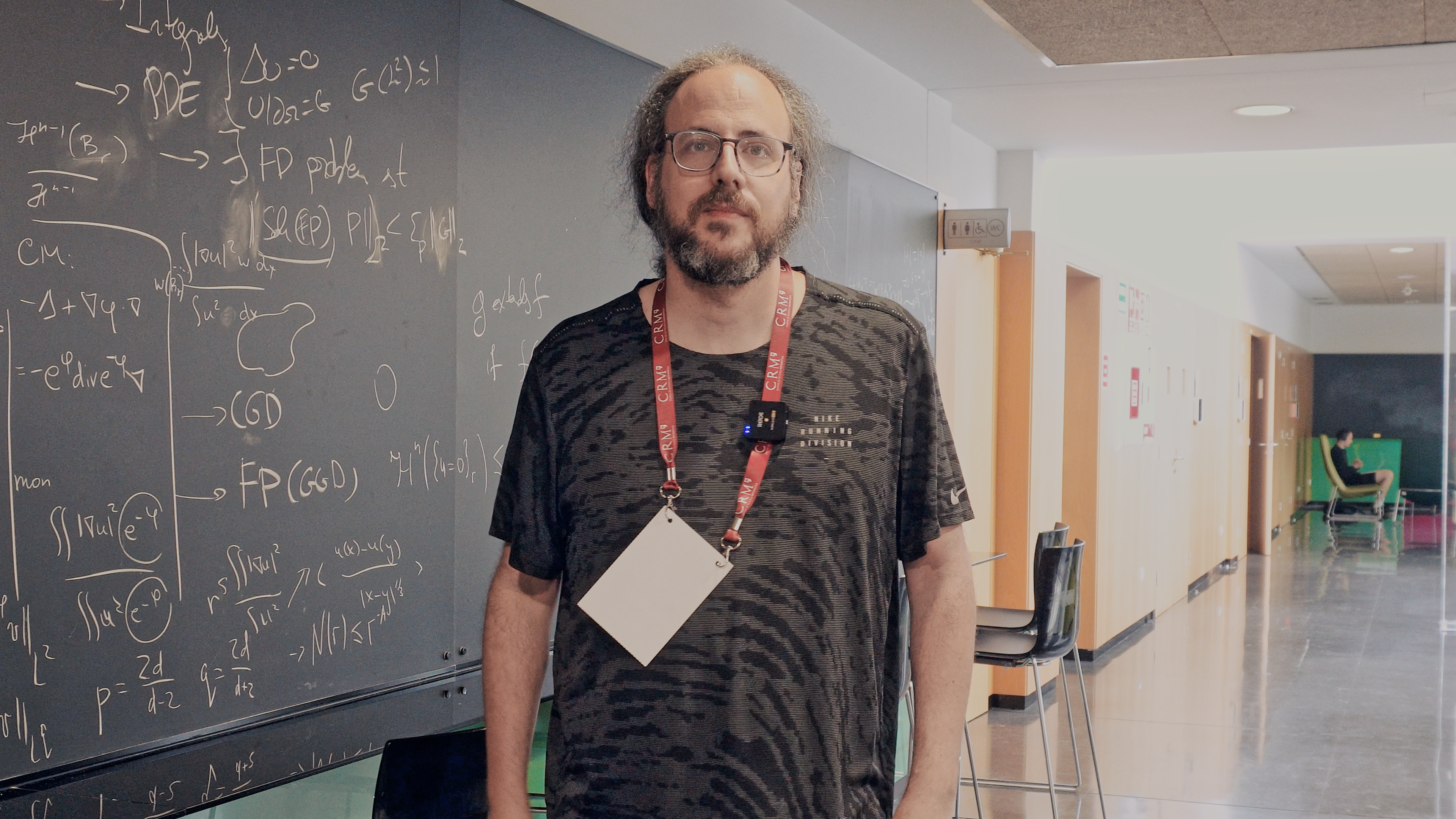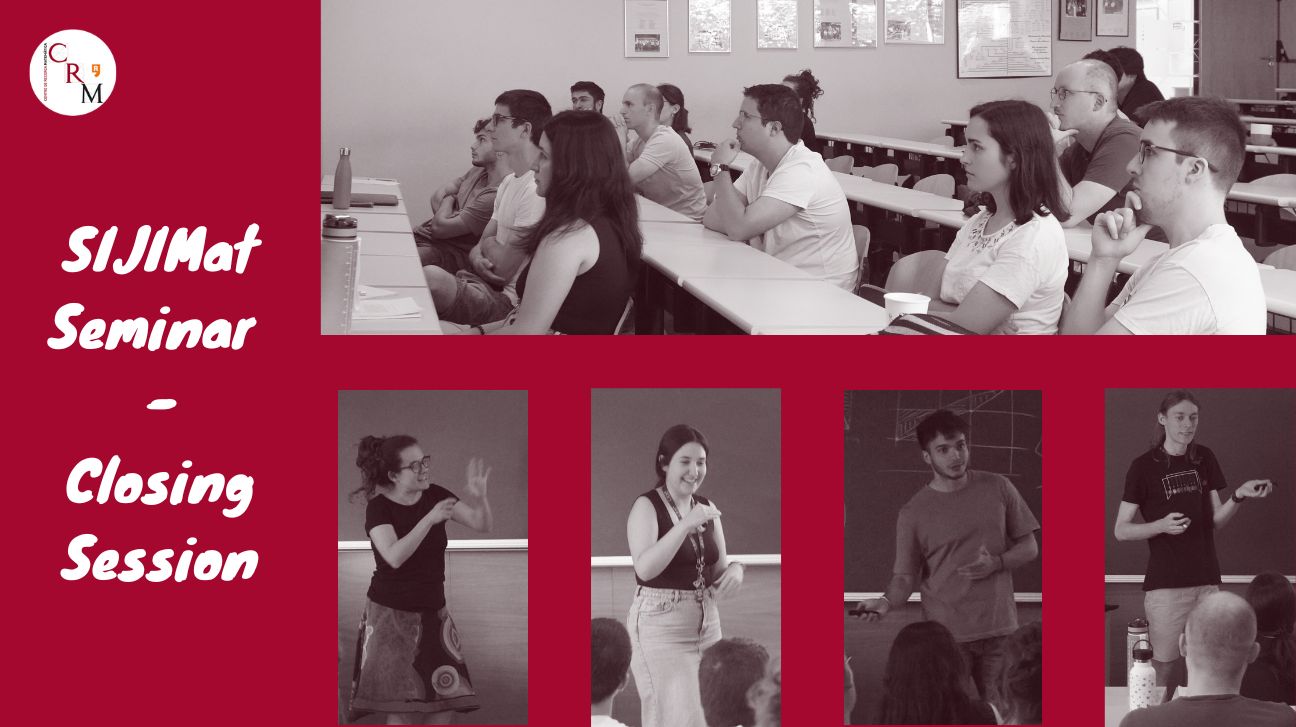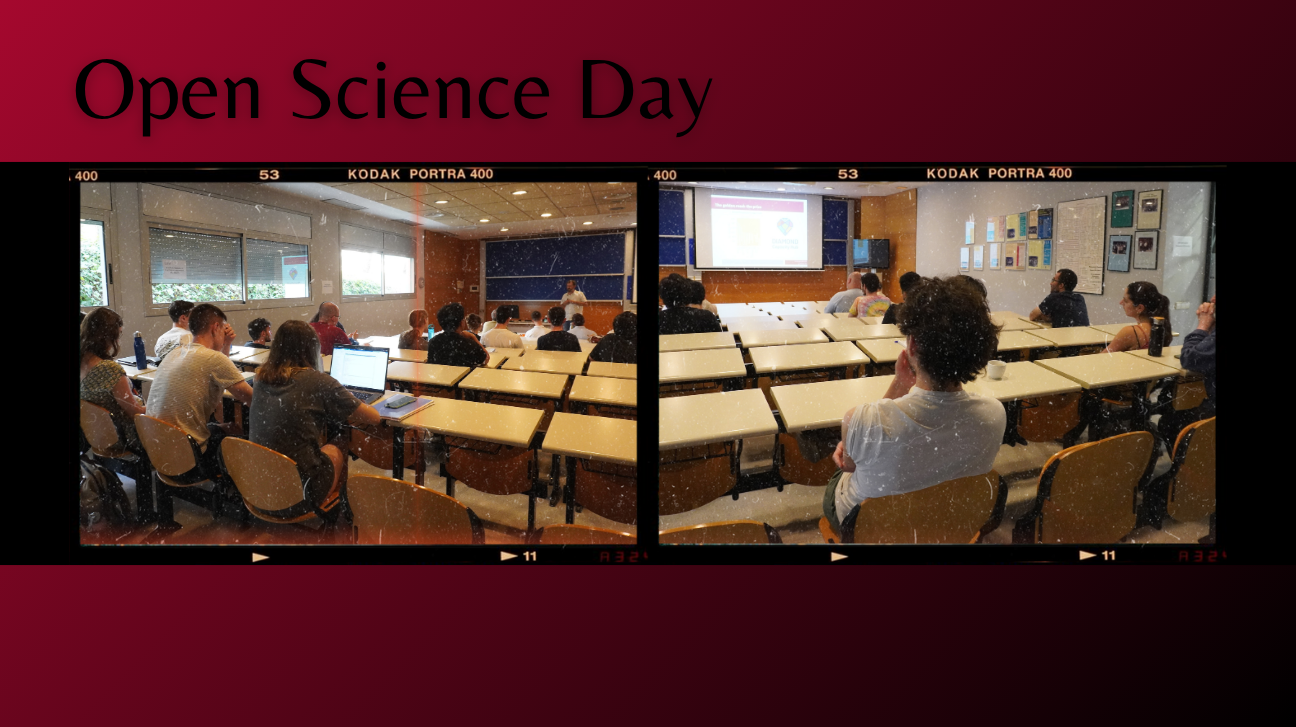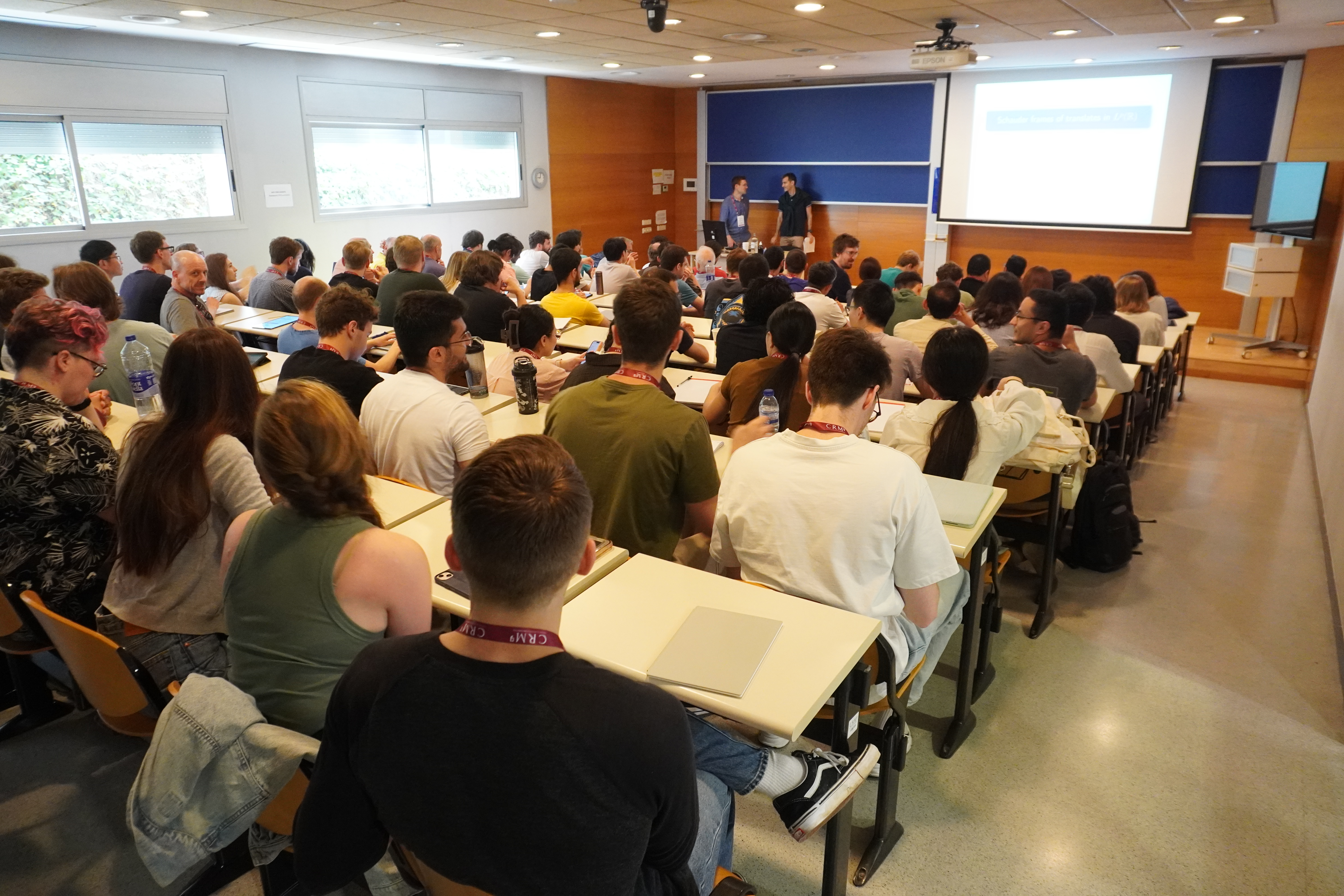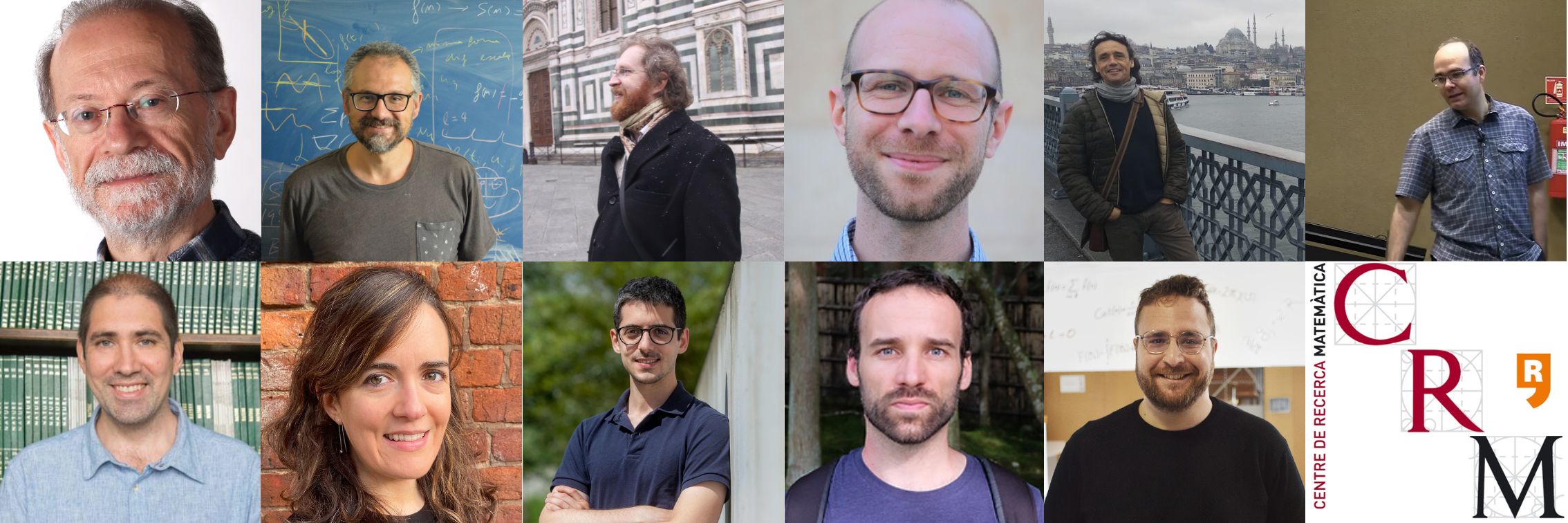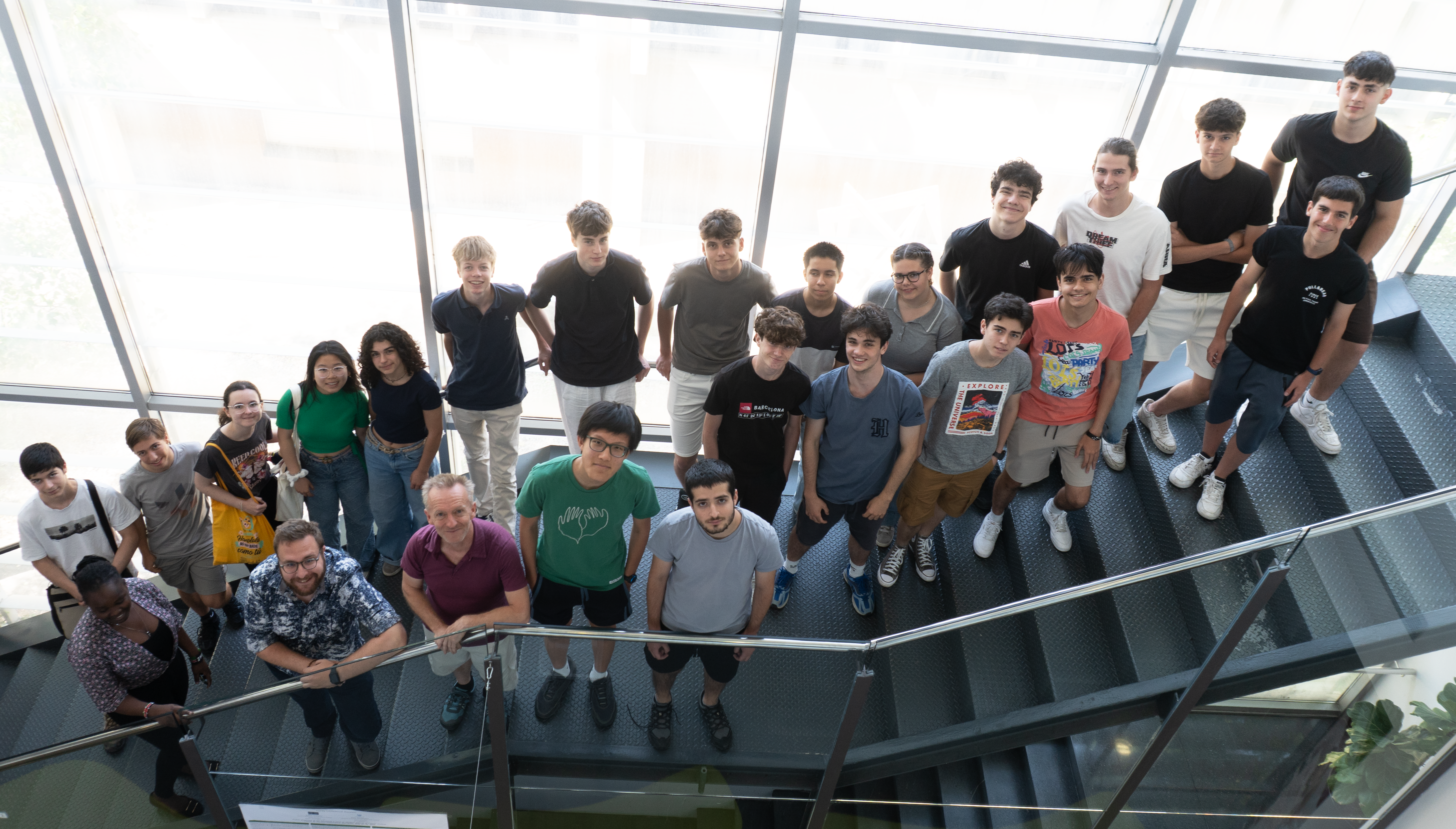
Researchers from the Centre de Recerca Matemàtica (CRM) are working on an innovative project called DYSEDAS, which aims to develop an efficient method for storing large amounts of data using techniques from symbolic dynamical systems. The project’s goal is to minimize data sizes without any loss of information. Initially, the focus is on compressing image files, which typically require substantial storage and bandwidth. Leading the project are Lluís Alsedà, a professor at the Universitat Autònoma de Barcelona and Director of the CRM, and David Romero, Director of the CRM Knowledge Transfer Unit.
David Romero explains that the main idea “is to develop a compression system that matches the level of existing compression systems, without requiring high levels of computation, making it more accessible for everyone to use.”
The tech industry’s growth has led to an increased demand for data storage, resulting in significant environmental consequences. Data centres, which store and process vast amounts of information, consume large amounts of electricity and contribute to CO2 emissions. By reducing data sizes, DYSEDAS aims to lower the energy requirements for data storage and transmission, thus reducing greenhouse gas emissions and environmental impact.
“Maintaining data is expensive because large data centers consume a lot of energy” adds Romero. “The goal of DYSEDAS is not just to create a compression algorithm specifically for images but to develop one that can handle any file type. There are algorithms that work better for images than text, and our aim is to address this variability.”
Moreover, the project offers potential economic benefits by lowering the need for extensive data storage infrastructure. This is especially beneficial for sectors like academia, healthcare, and public services that rely heavily on large volumes of data. For instance, the healthcare industry generates vast amounts of imaging data that require efficient storage solutions. DYSEDAS’s technology can make these processes more sustainable and cost-effective.
A Broader Vision for Sustainability
Projects such as DYSEDAS hope to contribute towards a more sustainable future where technology innovation does not come at the expense of our natural resources and ecosystems. By minimizing the environmental impact of managing the large volumes of data that nowadays flood storage facilities, the project supports global efforts to reduce carbon footprints. Additionally, the method’s universal applicability means it can be extended to other types of data beyond images, potentially transforming data storage across various domains.
The project also aligns with the goals of the FAIR/Open Science movement, promoting the use of scientific and technical data for innovation and modernization. By enhancing data management and distribution, DYSEDAS supports public sector agencies involved in critical areas such as weather, climate, and emergency services.
Romero highlights the importance of reproducibility in science, stating, “For science to be fair, experiments must be reproducible. The results obtained from the data should be reproducible, meaning that existing data should be usable in an open manner. If there is a lot of data, to conduct new experiments, this data must be stored compactly, accessible, and without any data loss using the compression algorithm.”
DYSEDAS is funded by the Spanish Ministerio de Ciencia, Innovación y Universidades as part of the Transición ecológica y transición digital call. This funding initiative aims to promote R&D activities to increase the competitiveness and international leadership of Spanish science and technology through the generation of scientific knowledge, quality research, and the development of technologies.
Digital transition projects such as DYSEDAS aim to enhance the infrastructures, skills, and technologies needed for a digital economy and society, fully leveraging the synergies and opportunities of new technological developments and data management, while prioritizing people and their digital rights.
Subscribe for more CRM News
|
|
CRM CommPau Varela & Mariona Fucho
|
JISD 2025 – Where Dynamical Systems Meet PDEs
JISD 2025, held at the Centre de Recerca Matemàtica (CRM) from June 30 to July 4, 2025, featured four advanced minicourses delivered by Dmitry Dolgopyat (on averaging and Fermi acceleration in dynamical systems), Serena Dipierro (on the theory of nonlocal minimal...
ICMNS 2025: Ten Years of Mathematical Neuroscience, Celebrated in Barcelona
The 10th edition of the International Conference on Mathematical Neuroscience (ICMNS 2025) gathered more than 150 researchers from over 25 countries at the PRBB in Barcelona. Organised by the CRM and UPC, with the support of UPF, the event...
Hong Wang: On Solving Kakeya and Rethinking Restriction
At the Modern Trends in Fourier Analysis conference held at the Centre de Recerca Matemàtica, mathematician Hong Wang (NYU Courant) presented a new approach to the Stein restriction conjecture, connecting it with geometric incidence problems...
A Journey through Harmonic Analysis and PDEs – CRM Summer School Chronicle
From June 25 to 27, 2025, the Summer School on Harmonic Analysis and PDEs brought together researchers and students for three days of advanced courses and discussion. With lectures by Taoufik Hmidi, Daniel Faraco, and Joan Verdera, the program covered topics like...
Guillem Blanco rep el Premi José Luis Rubio de Francia 2024
Guillem Blanco, professor de la UPC i investigador adscrit al CRM, ha estat guardonat amb el Premi José Luis Rubio de Francia 2024 per les seves contribucions a la teoria de les singularitats i els D-mòduls. El jurat ha destacat, entre altres...
Hypatia 2025 Brings Together Young Researchers in Mathematics
The fourth edition of the Hypatia Graduate Summer School took place from 16 to 19 June 2025 in Barcelona. Addressed to PhD students, the school combined two advanced courses in number theory with a public colloquium, a film screening, and...
Javier Gómez Serrano collaborates with Terence Tao and DeepMind on an AI project to solve open mathematical problems
Javier Gómez Serrano, former CRM member and professor at Brown University, is working with Terence Tao and DeepMind on AlphaEvolve, an AI tool that uses code evolution to solve complex math problems. For him, it signals a shift in how research is...
Closing Session of the SIJIMat Seminar: A Celebration of Young Mathematical Talent
Four young researchers (S. Dhyr, A. Garcia, L. Unamuno and R.Homs) at CRM present their work in geometry, neuroscience, environmental statistics, and algebraic methods in the final SIJIMat session of the academic year.On June 12, the Centre de Recerca Matemàtica (CRM)...
What is Open Science? From Data to Impact: Insights from the CRM
On June 11, the Centre de Recerca Matemàtica (CRM) hosted the Open Science Day, bringing together researchers to explore the principles, challenges, and transformative potential of open science. With a central talk by Ignasi Labastida and a roundtable featuring...
The IRP on Modern Fourier Analysis moves forward with its main conference at CRM
For one intense week, the CRM auditorium became a meeting point for some of the most active researchers in modern Fourier analysis. From June 2 to June 6, 2025, the Conference on Modern Trends in Fourier Analysis brought together senior experts,...
Welcoming Eleven New Affiliated Researchers to the Centre de Recerca Matemàtica
From left to right, top to bottom: Carles Broto (UAB-CRM), Álvaro Corral (UAB-CRM), Wolfgang Pitsch (UAB-CRM), Richard Lang (UPC - CRM), Simeon Ball (UPC - CRM), Lluís Vena (UPC - CRM), Jorge Antezana (UB-CRM), Leticia Pardo (UB-CRM), Guillem Blanco (UPC - CRM),...
El CRM acull una nova sessió del programa Bojos per les Matemàtiques
Dissabte passat, el Centre de Recerca Matemàtica va acollir una sessió del programa Bojos per les Matemàtiques, adreçat a estudiants de batxillerat amb interès i talent per aquesta disciplina. Una vintena de participants van assistir a dues...

